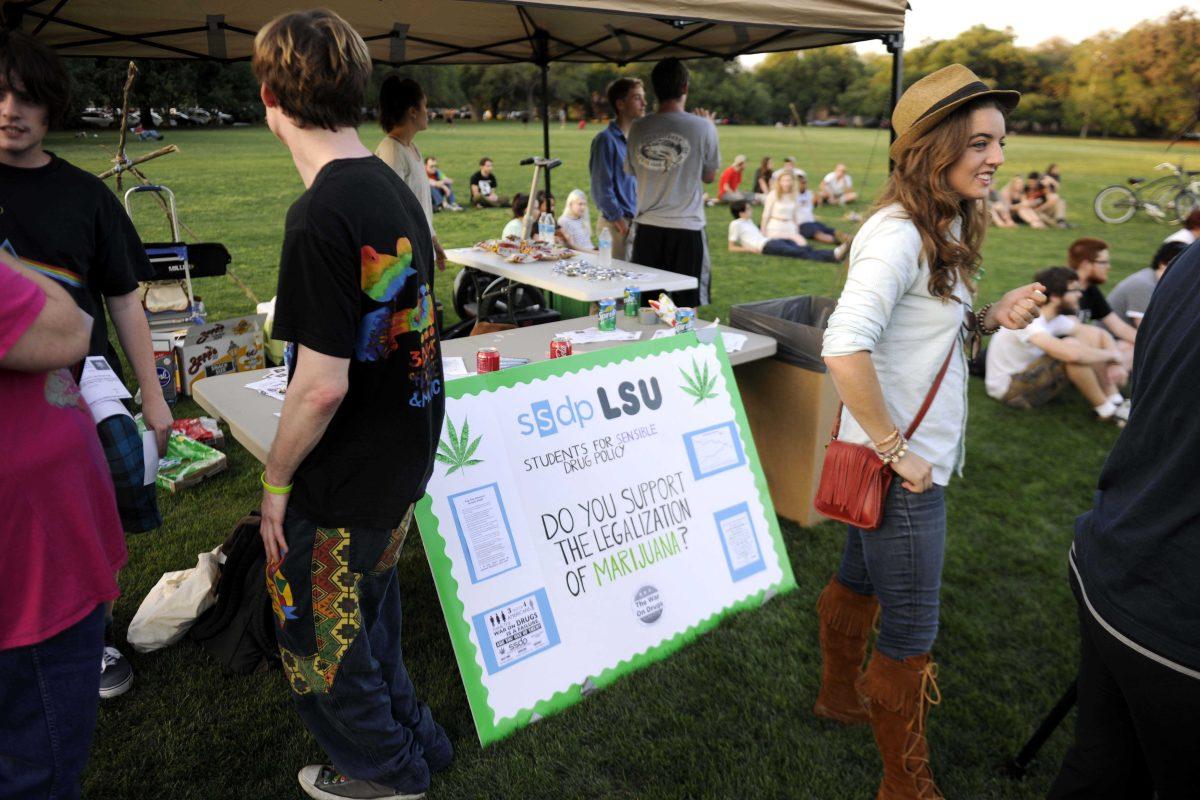Growing up in Louisiana, I realized early on that alcohol was a big part of our culture. I was taught that drugs are bad in the Drug Abuse Resistance Education program — except for the drugs your doctor gives you, and alcohol is OK. I graduated as a firm believer that I would join the ranks of those who never abuse a substance and would save their first drink for their actual 21st birthday.
I was immensely naïve. And I remained that way throughout high school, never once drinking or using any drug. I didn’t even like the idea of taking Tylenol because I was worried about my chances of addiction.
It wasn’t until college that I even learned about “Mary Jane,” “pot,” “kush” or any of the other nicknames for marijuana and how many people around me were using it. I’m going to refrain from delving into specifics to protect myself and others, but meeting people who were getting straight A’s in their biochemistry, chemical engineering or other-impressive-and-scary-sounding-department’s classes while also nursing a regular marijuana habit was eye-opening.
In college, I’ve seen a handful of arguments used to convince us that sobriety is the only pure and honest way of living. But it’s not realistic to expect drug use to stop countrywide, and right now, the idea of marijuana users being good-for-nothing bums living on their neighbors tax dollars is equal parts ridiculous and harmful to our culture.
You can’t tell me that when you walk through a Ra Shop, you believe the “for tobacco use only” signs mean that anyone who buys a water pipe is going to refrain from smoking something greener in it. We’ve adopted a cultural silence on drug use that’s keeping us from talking about drug addiction in a healthier manner.
Students for Sensible Drug Policy at LSU are actively working against the stereotypes surrounding marijuana users and the silence surrounding the conversation about marijuana.
On Saturday, SSDP partnered with the Louisiana Cannabis Coalition and led a parade down Bourbon Street in New Orleans, in the style of a jazz funeral, to “bury marijuana prohibition.” The event started with a series of speakers from non-profit responsible drug use organizations and political activists. And even when the skies began to literally rain on its parade, the group marched to Jackson Square, where the cheer continued.
An activist who worked on the campaign to legalize and regulate marijuana in Colorado led a chant in front of the Mississippi River and The Shops at Jax Brewery patrons, “Marijuana, marijuana. Hey, hey, hey. Get high.”
It wasn’t all just teenagers wearing pot leaf socks and older people holding posters with facts about medical marijuana usage. Make no mistake, those things were there too. But the real message from the speakers and the literature they were distributing was that marijuana users aren’t like we describe them in sitcoms and movies.
I attended a meeting of SSDP last week, and from the moment I stepped into the classroom, I was surrounded by a group of friendly and talkative students all from different backgrounds.
I had heard jokes about how the “drug club” was just a cover for a bunch of stoners to get together on campus and participate in some sort of round table like on “That 70’s Show.” And to be honest, I half expected it to be like that.
But when I listened to SSDP president Austin Guidry talk to the group about the importance of students taking part in activism, not only in the effort to legalize marijuana, I realized that we’ve been wrong. These kids aren’t just in favor of pot because they want to smoke it.
They can discuss the racial and criminal justice system and how it has been affected by the anti-marijuana drug laws. They can tell you the effects the drug has on your body — and not just marijuana. They actively educate themselves on all drugs.
These are students just like me who have been able to get backing on a piece of legislation they wrote themselves. They dressed up in green outfits and walked through a 30-minute downpour on a Saturday afternoon but attended their classes Monday morning. They work jobs and do their homework.
They’re doing a lot more good than any of the anti-marijuana laws and stereotypes are doing for our society, and they seem a lot happier too.
Jana King is a 20-year-old communication studies junior from Ponchatoula, Louisiana. You can reach her on Twitter @jking_TDR.
Opinion: SSDP at LSU changing the image of marijuana users
By Jana King
October 14, 2014
LSU Students for Sensible Drug Policy’s booth holds information on marijuana legalization.
More to Discover








